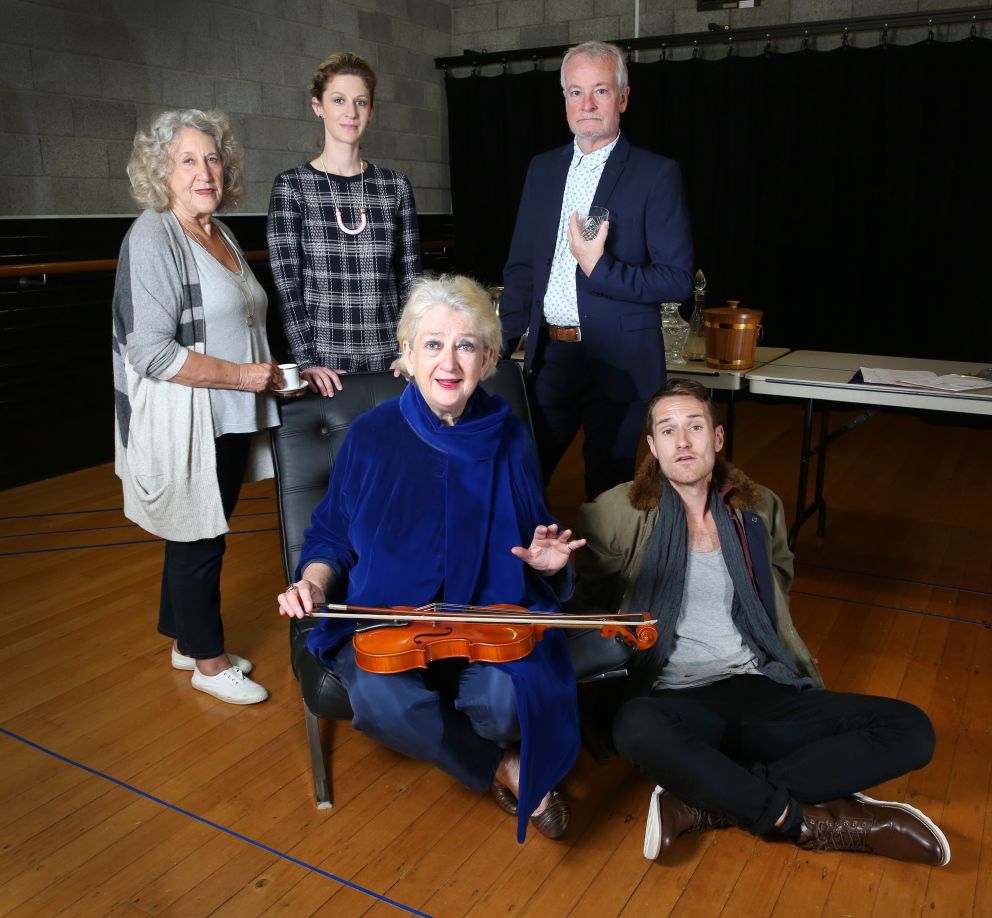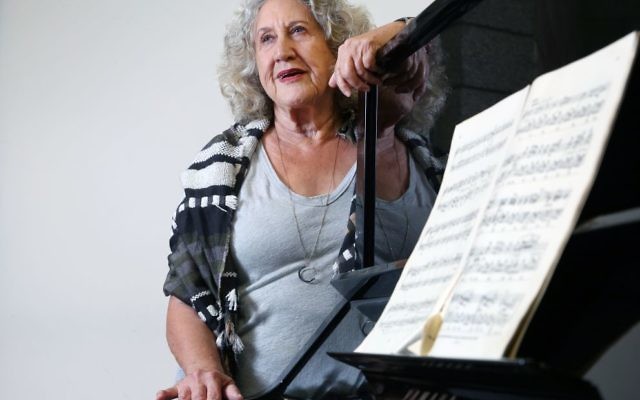Playing up the Wagner debate
'You Will Not Play Wagner' is set in Tel Aviv, where Ya’akov, a young Israeli upstart played by Benedict Wall, causes a storm by selecting to perform Wagner in the finals of an international competition for conductors.
ALTHOUGH Wagner’s anti-Semitism and the use of his music by the Nazis are well known, the unofficial ban on his music being performed in Israel has been challenged – unsuccessfully – by conductors Zubin Mehta and Daniel Barenboim.
Opposition to Wagner’s music remains steadfast, but should it? That’s one of the questions posed by the play You Will Not Play Wagner, written by Victor Gordon and directed by Moira Blumenthal which premieres at the Eternity Playhouse, Darlinghurst next week.
“It’s a debate about reason and logic, emotion and memory,” Blumenthal told The AJN. “It’s a play that has lots of significance in asking how you divorce an artwork or creation from its creator?”
You Will Not Play Wagner is set in Tel Aviv, where Ya’akov, a young Israeli upstart played by Benedict Wall, causes a storm by selecting to perform Wagner in the finals of an international competition for conductors.
He comes into conflict with Esther (Annie Byron), a Holocaust survivor and competition patron who has her own tragic connection with Wagner’s music.
“It’s a debate between a young, new Israeli who is very aware of the Holocaust and what it means to the previous generation, but with a point of view that is in direct opposition to Esther,” says Blumenthal.
Their arguments push the competition to the brink and set Israeli society on edge. Should Ya’akov play Wagner? Should the politics of his music interfere with the quality of his art? To what extent do we honour the memory of the Holocaust, its survivors and their descendants, without stifling the next generation? And would a Jewish Israeli conducting Wagner be treachery or triumph?

Annie Byron and Benedict Wall at rehearsals for ‘You Will Not Play Wagner’.
“How does a man that was such an obnoxious creature and an anti-Semite produce such glorious work?” asks Blumenthal. “That’s the kernel of the play and it’s something that to this day I can’t quite resolve for myself. It’s not clear-cut and it’s not easy to understand. That’s the journey that the audience have to take.”
The play revolves around a hotly-contested question of whether or not one can feel bigotry and prejudice just from a piece of music. Conflicting answers cause drama and upset between personalities and generations in the play, with Esther insisting that the music is the bearer of a deadly message while Ya’akov maintains that it’s time to move on.
“The arguments are so strong on both sides,” says Blumenthal.
The timing of the play is poignant, too, because there are still Holocaust survivors living among us.
“If [this play] was produced 20 or 30 years in the future and we’d lost all the survivors, I’m not sure that it would have the same message,” Blumenthal muses.
“And yet, there’s trauma that is part of a culture. It’s not just the survivor generation. The next generation carry that trauma as well and that is also addressed in the play. The younger generation are the inheritors of the pain and memory.”
Blumenthal adds: “The problem is that it’s not just a minor composer that we’re talking about. Any musician will say that Wagner takes a place in the canon of music the same way Shakespeare does in literature. Do we ignore that legacy?”
The play has an important educational content – it questions our history and exposes scabs that haven’t healed and historical wounds that haven’t been properly examined.
This is the third Shalom production that Blumenthal has worked on in a 12-year career that has revolved almost exclusively around Jewish material. She has worked on My Name is Asher Lev, The Chosen and Coming to See Aunt Sophie.
“Our audiences want Jewish stories and the non-Jews are fascinated,” says Blumenthal. “I think that it’s become a mission statement for me, to tell our stories.”
You Will Not Play Wagner is at the Eternity Playhouse, 39 Burton St, Darlinghurst from May 4-28. Click here to book.
YAEL BRENDER


comments